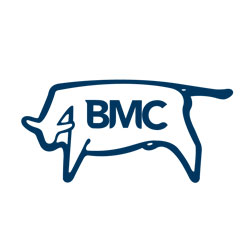In conversation with
Dr. Akolang Tombale
CEO | Botswana Meat Commission

FDI Spotlight: It is clear that the BMC needs a bold new vision and direction. What is that vision in order to move the company forward?
Dr Akolang Tombale: The company has gone through a few dynamic changes, especially since the country gained independence. As a private company, BMC used to be the only company allowed to export cattle as we had a single export distribution channel . The British government, when they were still in charge, eventually took an interest in cattle farming. This was because in Botswana most of the farming was on a smaller scale, and the idea was to help develop the cattle herd, which was not the quality it should have been, as well as put money into the Farmer’s Trust. Back then the market was not as strict as it is now. We could bring cattle from all over the country and slaughter them here and export to Europe, as long as they were free of any diseases.
However, this changed in the early 2000s; the EU, who were our largest export market, changed regulations regarding farming and slaughtering in terms of location and providence of the livestock. This was quite a challenging time for the BMC, as previously our organisation has bought cattle from farmers that had been left to roam freely and graze on whatever was available. However this informal style was not satisfactory for the EU regulatory body to ensure the quality and accountability of the cattle and ultimately, the beef they were purchasing. This is when the BMC stepped up with a bold plan to guarantee the quality of our beef, whilst safeguarding the livlihoods of millions of people involved in the cattle industry here.
The strategy that the BMC devised was to buy the cattle from the farmers, wherever they were in the country and bring them to our controlled feedlots; where the cattle would be cared for 90 days so that the BMC can obtain traceability in order to export whilst ensuring cattle farmers were getting paid for their livestock. As much as this strategy helped alleviate a restriction we had in facilitating the demands of our most important export clients, it raised new challenges, namely cash flow.
The bottleneck occurs as generally we are paying the farmers in cash for their livestock, holding the cattle in the feedlots for 3 months while feeding and taking care of them, to then slaughter and export to Europe which may take an additional 6-8 weeks to get to the intended destination. But the problem does not end there, as our largest clients such as international food chains and supermarkets negotiate heavily to get longer credit terms. Therefore the need for reform in this value chain is abundantly clear.
Now our bold new vision is to streamline proccesses and increase efficiency across the board. One of the biggest decisions that we are pushing forward is the closing of the Francistown abbatoir. The reason for this is that when it was opened, the intention was to capitalise on the cattle trade in the north of the country. However all that has happened is that neither Lobatse or Francistown is working close enough to capacity. Our strategic management team have decided to maximize economies of scales at Lobatse by centralising activities at our main site. The key to our future is embracing a more entrepreneurial model in line with the global marketplace that we compete in. As much as the BMC for many years has been used to guarantee jobs in rural communities, if we continue to run in an inefficient manner, everybody may lose out.We have also started the process of privatising the company, and the hope is that it can be completed by the end of this year.
Across many sectors in the world technology is used as a disruptor. How do you think technology can be used to improve the quality of the cattle and the general workings here at BMC?
Dr Akolang Tombale: In our industry, technology helps on the production side, but the farming aspect has remained relatively unchanged. As you are dealing with a natural substance, the process around farming and slaughtering has stayed relatively the same. It also comes to financing; in order to improve your current technologies or use innovative new ones, you need a partner to help you finance it. We would need one to build a new plant that is more modern than the one we have now. It is not something that is off the table, but it is not the main focus right now.
What do you think the BMC’s responsibility is in terms of educating farmers on the importance of meeting export regulations and cultivating a mind-set of having world class beef to export?
Dr Akolang Tombale: This is part of our idea when it comes to privatisation. We want the farmers to be part of the organisation and for them to be involved on a management level. By that I mean not necessarily being involved in the day to day, but for them to be consulted on departments and processes. This will assist in knowledge and skills transfer, which will create sustainability, and the famers themselves will be able to understand the market and understand why they need to maintain a standard. We cannot continue a system where there is very little accountability from our suppliers.Our value proposition is the product we are bringing to market. For example, we need to now find a way to make feeding the animals in the feedlots cheaper. The meat products from feedlot cattle have become a new brand that competes very well in several markets more especially in those markets that dependent on diary cattle for their meat products such as Norway.As Botswana was a pioneer in a sense when it comes to the feedlot, it is an area where we can definitely improve our value proposition, and export our expertise and technology.
What BMC needs is niche marketing and it gives us an opportunity to go to the higher paying markets. I mention Norway again because we have been able to penetrate their market quite easily because they love our products and what we do. You have some plans to enter other markets such as those in Angola, Russia, Israel and China.
Why is internationalisation so important and why is it important to market BMC globally?
Dr Akolang Tombale: It is important to understand that you cannot depend entirely on one market. However, you also need to understand that we are not a volume producer. Therefore, we need to enter those markets in a different way. The idea is to look at successful markets, such as South Africa, understand their expectations of quality, and find one that is equal or above it. At the moment we supply quite a few markets, but not in terms of great volume. So we want to look at the South African market and what we are doing right there, and use that as a template to move into similar markets.
Internationally, we have subscribed to certain standards such as being BRC recognised. Their auditors come inspect us once a year, and so far have been given a Grade A rating every year since we started. This year we are proud to say that we have improved on that and we have been given a Grade A++ rating – we are one of only a few facilities in the world to have this rating. McDonald’s have also given us a 98% compliance rating, and we have continually tried to improve on our standards. This is part of what I mean by using niche marketing, because even though we are smaller and not as financially well off as many of the bigger beef distributing countries such as Brazil, we speak to those who want true higher grade products – and we have the ratings to back it up.
What is your message of confidence to the international community and why would you say they should partner with BMC?
Dr Akolang Tombale: BMC is a high value producer; we have high quality meat products that is bought from all over the world. We do need to improve our production system in order to attract more investors and we need to modernise our facilities. The famers, as mentioned, need to be more active stakeholders so that investors can see that every single person involved in making the products are involved in the company as well and meeting the required standards. That said, it is important that people know that we are a growing company and that we have potential. The future is bright; if we can be successful with our government dealings and discussions, we can use it as leverage to diversify and grow even more.
